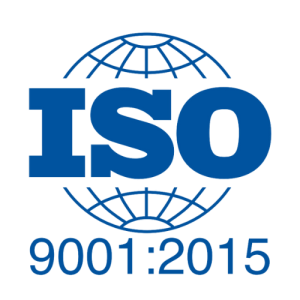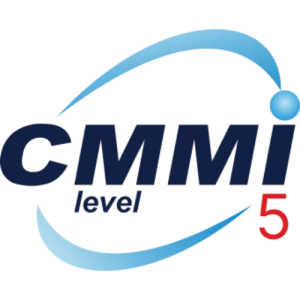Canada CRS Points
How can I improve my CRS scores?
To improve your CRS score for Canada Express Entry, consider the following strategies:
- Improve Language Proficiency:
Enhance your language skills in English and/or French, as language proficiency is a significant factor in the CRS. Take language tests, such as the IELTS or CELPIP for English or TEF for French and aim for higher scores.
- Gain More Work Experience: Acquire additional work experience in your occupation to earn more points. Consider taking up relevant employment opportunities, internships, or volunteer work to enhance your profile.
- Upgrade Education: Pursue further education or gain additional qualifications to increase your CRS score. Obtaining a higher level of education, such as a Master’s degree or PhD, can significantly boost your points.
- Obtain a Job Offer: Secure a valid job offer from a Canadian employer. Having an offer of employment can provide substantial CRS points. Explore job opportunities through job boards, networking, or contacting Canadian employers directly.
- Apply for Provincial Nominee Programs (PNPs): Many Canadian provinces have their own immigration programs that offer additional points for applicants. Consider researching and applying to PNPs to increase your CRS score.
It’s important to note that while improving your CRS score is advantageous, meeting the minimum required score in each draw is crucial. Additionally, the strategies to improve your CRS score may vary based on your individual circumstances. Consider consulting with a licensed immigration consultant or lawyer who can provide personalized guidance tailored to your situation.
How can your CRS Score be raised?
Draws for Express Entry happen occasionally, typically once every two weeks. Therefore, you can always raise it before submitting an Express Entry application for a later draw. If you fall short of the CRS cut-off in the given draw, there are a number of options to raise your score. Thus, in the forthcoming Express Entry draw, you can raise your CRS score and gain the necessary points to receive an ITA – Invitation to Apply for the Canada PR Visa.
Here are some suggestions for raising your CRS score:
Boost your language proficiency
By earning high results on language exams like the IELTS, you can raise your CRS score. For instance, if you get CLB level 9 in the language test, you can increase your CRS rank by a maximum of 136 direct points. Similar to that, showing up for a French language test can result in up to 72 points.
Program for Provincial Nominees
You will gain an additional 600 points for your profile in Express Entry if you receive an ITA for a Nomination from a Canadian province.
Get a job offer that LMIA has approved.
A maximum of 200 points may be added to your CRS score if you accept a job offer from a Canadian firm that is recognized by the LMIA Labour Market Impact Assessment.
Acquire a degree in Canada
You can earn up to 30 points if you complete a recognized diploma or degree in Canada.
Submitting the application with a Common-Law Partner or Spouse
You will receive bonus points for three different reasons if you include your common-law partner or spouse in your application. The Common-Law Partner’s/ Spouse’s language competency will count for 20 points, while their work history and educational background in Canada each count for 10 points. So, you can raise your Express Entry CRS score by a maximum of 40 points.
Work Experience in Canada
If you have less than three years of full-time work experience and are still employed, you can raise your CRS score by a maximum of 150 points.
Maximum points for each factor for candidates for Express Entry, in summary.
- A. Key Elements of Human Capital
| Factors | Points for every Factor – With no Common-Law Partner or Spouse | Points for every Factor – With Common-Law Partner or Spouse |
|---|---|---|
| Age | 110 | 100 |
| Level of Education | 150 | 140 |
| Official languages proficiency | 160 | 150 |
| Canadian Work Experience | 80 | 70 |
- B. Factors related to a spouse or common-law partner
| Factors | Points for every Factor (Maximum 40 points) |
|---|---|
| Education Level | 10 |
| Proficiency in Official Languages | 20 |
| Work Experience in Canada | 10 |
Maximum 500 points: A. Core Human Capital plus B. Common-law partner or Spouse considerations (without OR with a common-law partner or spouse)
- C. Skill Transferability Factors
| Education | Points for every Factor (Maximum 50 points) |
|---|---|
| With excellent proficiency in the official language and post-secondary credentials | 50 |
| With work experience in Canada and post-secondary credentials | 50 |
| Overseas Work Experience | Points Per Factor (Maximum 50 points) |
| With excellent proficiency in official languages (CLB Canadian Language Benchmark level 7 or more) and post-secondary credentials | 50 |
| With overseas work experience and Canadian work experience | 50 |
| Qualification Certificate (for individuals in trade jobs) | Points Per Factor (Maximum 50 points) |
| With excellent proficiency in official languages and qualification certificate | 50 |
Core Human Capital plus Spouse, Common-law Partner, and Transferable Skill Factors equals a maximum of 600 points.
- D. Additional Points
| Factors | Maximum points per factor |
|---|---|
| Sibling in Canada (permanent resident or citizen) | 15 |
| French Language proficiency | 30 |
| Canadian Post-secondary education | 30 |
| Prearranged employment | 200 |
| Provincial Nomination | 600 |
Core Human Capital plus Spouse or Common-law Partner plus Transferability Factors plus Extra Points equals a maximum of 1,200 points.




















